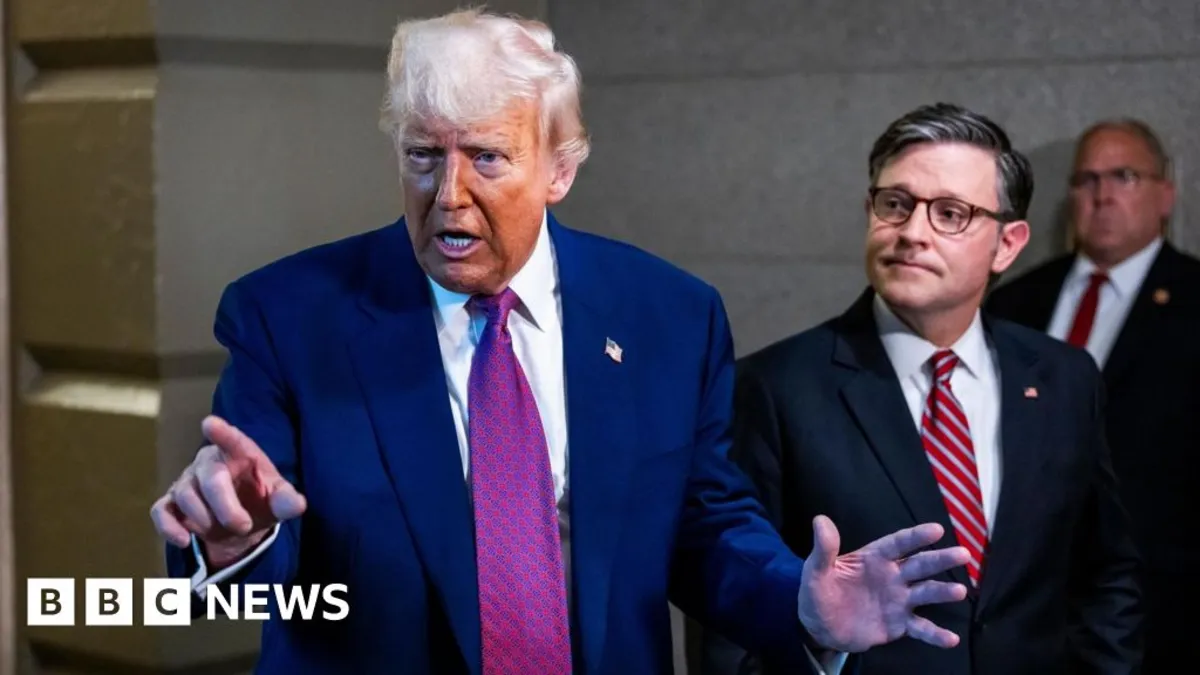
On Wednesday, President Donald Trump and House Republicans continued their intense negotiations regarding a comprehensive tax and spending bill. Discussions took place at the White House as lawmakers prepared for a possible vote. Trump dedicated several hours to meeting with members of the House Freedom Caucus, who have expressed their refusal to support the proposed legislation, arguing it does not sufficiently address spending cuts.
The proposed bill incorporates many of Trump’s key priorities, including the extension of tax cuts enacted in 2017, the elimination of taxes on tips, increased funding for defense and border security, as well as cuts to government healthcare programs. According to the Congressional Budget Office (CBO), the bill could add approximately $2.3 trillion to the US national debt over the next decade. This is a significant concern for Trump, who campaigned on a platform promising to reduce the US budget deficit, currently estimated at around $36.2 trillion.
Negotiators worked tirelessly through the night on Tuesday, with a House committee meeting commencing at 01:00 local time (05:00 GMT) on Wednesday. Given that Republicans hold a slim majority in the House and that Democrats are uniformly opposed to the legislation, Trump can only afford to lose a few votes from his party. With a self-imposed deadline looming at the end of the month, just 10 days away, the urgency to pass the bill is palpable.
Following the negotiations at the White House on Wednesday, House Speaker Mike Johnson indicated that the full House might vote on the bill either Wednesday night or Thursday morning, as reported by Politico. Trump has dubbed his proposal the "One Big Beautiful Bill Act," but it faces challenges from members of the House Freedom Caucus who demand further spending cuts. Simultaneously, some Republicans from Democratic-leaning districts are advocating for larger tax cuts for their constituents, aiming to increase credits available for those paying higher state taxes.
Trump and Johnson are tasked with navigating the competing interests within their party, a balancing act that could prove challenging. Kentucky’s Thomas Massie, a notable Republican dissenting voice, criticized the closed-door negotiations via social media, questioning the rushed timeline for voting on such a significant bill. He emphasized the need for adequate time to read and understand the implications of the legislation.
In a bid to garner support, Trump visited Capitol Hill on Tuesday to advocate for the bill, urging both budget-conscious Republicans and those favoring tax cuts to unite behind the proposed legislation. However, it remains uncertain whether he was able to sway many votes. Democrats are vocally opposing the bill, contending that it disproportionately benefits the wealthy while unfairly penalizing lower-income Americans, as evidenced in committee hearings and on social media platforms.
The White House has downplayed concerns surrounding the growing US debt, arguing that the proposed tax cuts will spur economic growth. Trump has also suggested that his ongoing tariff program will generate additional revenue for the federal government. Nevertheless, many economists and experts align with the CBO's assessment that the bill will indeed increase the national debt. Despite these challenges, supporters of the bill remain optimistic about its eventual passage. Republican Jason Smith from Missouri stated, “Failure is not an option in getting this done.”